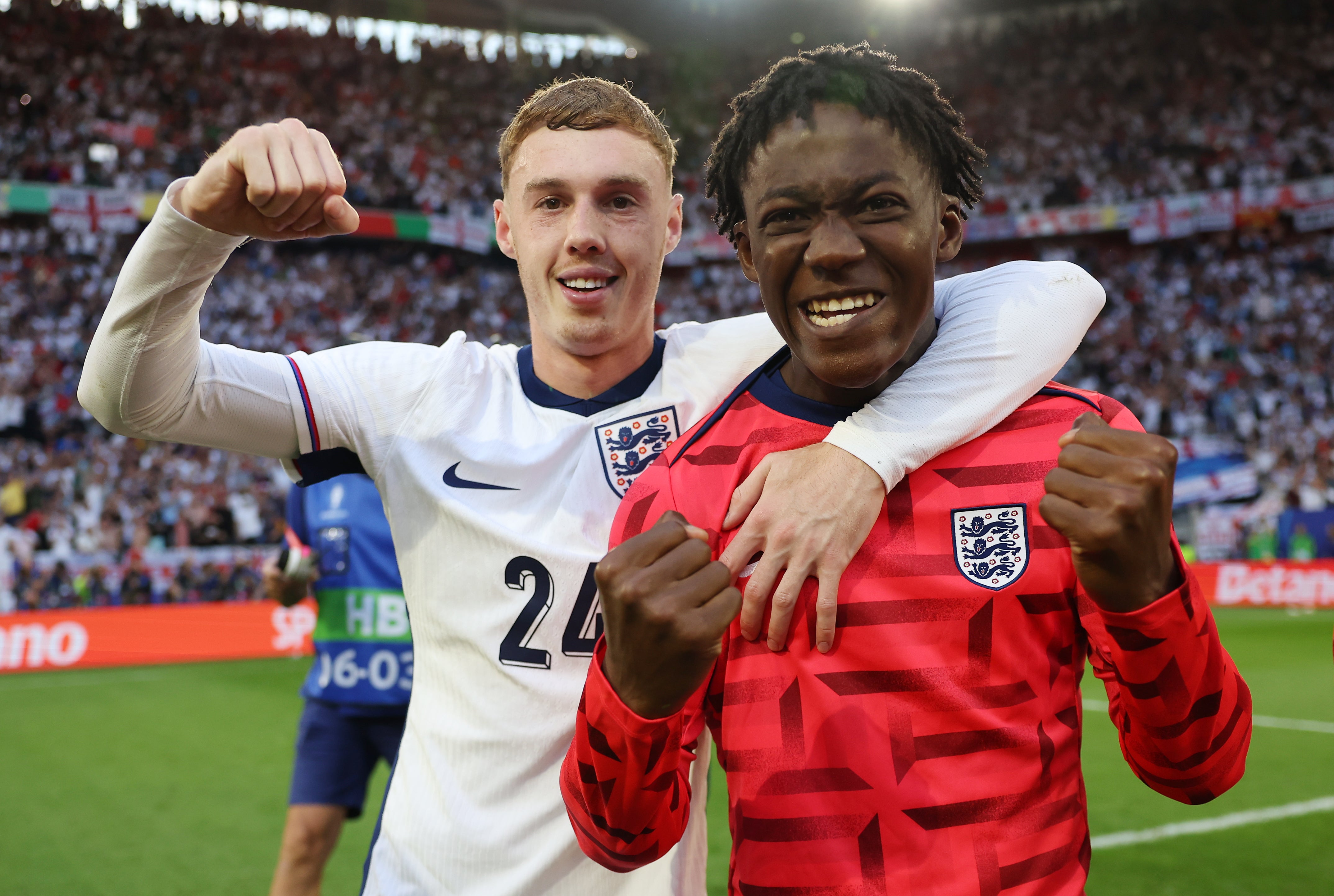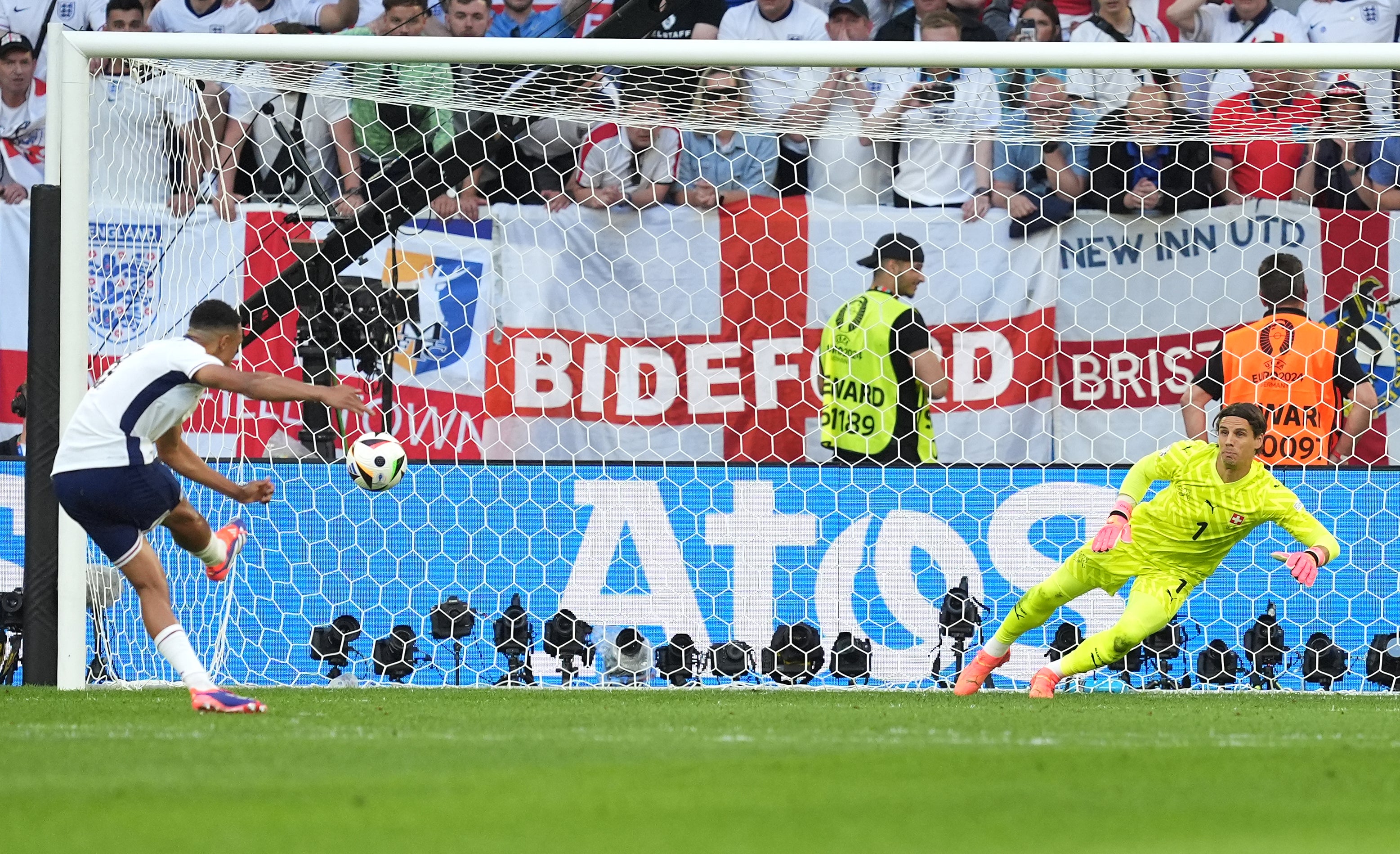England’s quarter-final reaction gives Gareth Southgate an exciting answer for the future
A triple-change off the bench produced an injection of quality and pace - the squad is there to make the Three Lions better
Another game for England without entertaining the masses, but another step closer to the Euro 2024 final - and perhaps another hint as to where the future lies, whether that comes during this tournament or not.
Not from another one-paced, uninventive display. Not with the supposed tactical shift either, which did little to change the speed of England’s play or the way they constantly checked inside to play safe and create too little. But if the original 90 minutes didn’t contain sufficient drama, their second late equaliser in as many matches and a subsequent penalty shootout victory perhaps offered just enough.
Instead, the big positives for England to take might be from what they didn’t do to start with: the changes made, the introductions of personnel and pace, the ability they clearly possess to alter their approach in important stages of games.
Two fixtures in a row now Gareth Southgate’s substitutes have seen the match swing in England’s favour - though both times they could surely have come earlier, both times they were clearly required before the Three Lions started to panic and the clock began to run down.
Even so, answers have emerged which may give a continued route through this tournament as an in-game switch, before becoming more permanent options in future.
Maybe the biggest lesson Southgate himself can take is that he has options beyond the favoured 11, with the subs and squad options impacting again in such fashion.
In neither instance - against Slovakia, against Switzerland - were the players coming on immediately involved or responsible for saving the team, of course: Jude Bellingham and Bukayo Saka, the players who found equalisers against each nation respectively, are both starters.
But the changes themselves occurring are the impetus, the signal almost, that a change of intensity and tempo is now not just required, but vital to the cause.
The new faces might not have been the immediate source of goals, but they present a different problem for the opposition to get to grips with, positionally as much as technically. And in both matches, the entrants still quick impacts: Ivan Toney’s headed assist for Harry Kane straight after extra time began against Slovakia; Cole Palmer teasing defenders and helping tee up Declan Rice against the Swiss, his shot just after the restart tipped wide when it could easily have made it 2-1.

All this isn’t to say that none of the current starters are the right choices of course, nor that the future is a complete change-around: Kobbie Mainoo has come into the side since the knockouts began and looks an assured and comfortable presence. Here, he was England’s best performer for an hour, the only player with a real change of pace to his game.
One glorious spin away from two midfielders in the first half opened up space which was otherwise sorely lacking once more. Shortly before half-time, though, he perhaps could have scored - should at least have tested Yann Sommer - but a fierce sliding block from Granit Xhaka prevented his shot moving more than a few inches goalward.
It should be noted what he was up against directly: a double-pivot Swiss pairing of Granit Xhaka and Remo Freuler who combined for precisely 200 caps before this meeting. Mainoo has now won seven, all of them since March.
He departed the pitch when England were a goal down and within minutes they were level, but that was no reflection on his showing - that simply showed the sheer need for the side do something different, to offer a new kind of threat, to find a way once more.
Mainoo’s place in the team is not yet secure, of course. He’s a young player and as such will go through all the usual ups and downs that promising talents do, while at other times, a gameplan or opponent may simply call for a different type of midfielder. Already England have been through three different starters alongside Declan Rice in the middle - and the first of those presented another decisive option off the bench this time, having been overlooked entirely against Slovakia.

Trent Alexander-Arnold had little time to impact in extra time but still made a couple of passes into the box and a decent defensive clearance - then absolutely thumped in his penalty to send England into the semis. For Southgate, another curious case arose: three of his penalty-takers are not in his go-to line-up, while two of them on key spot-kicks appear to be arguably among the most talented, but least-trusted members of his squad: Palmer with the first, Alexander-Arnold with the last.
Perhaps that is the real noteworthy takeaway from the quarter-final.
Not that the teamsheet is wrong, nor the tactics entirely problematic, but that once players know they can be replaced and others can be brought in to refresh the side and give different options to win games, performances naturally improve across the board. Take the lesson on board a little earlier and perhaps, next time, England won’t be cutting it quite as fine with a tournament exit.
Join our commenting forum
Join thought-provoking conversations, follow other Independent readers and see their replies
Comments
Bookmark popover
Removed from bookmarks